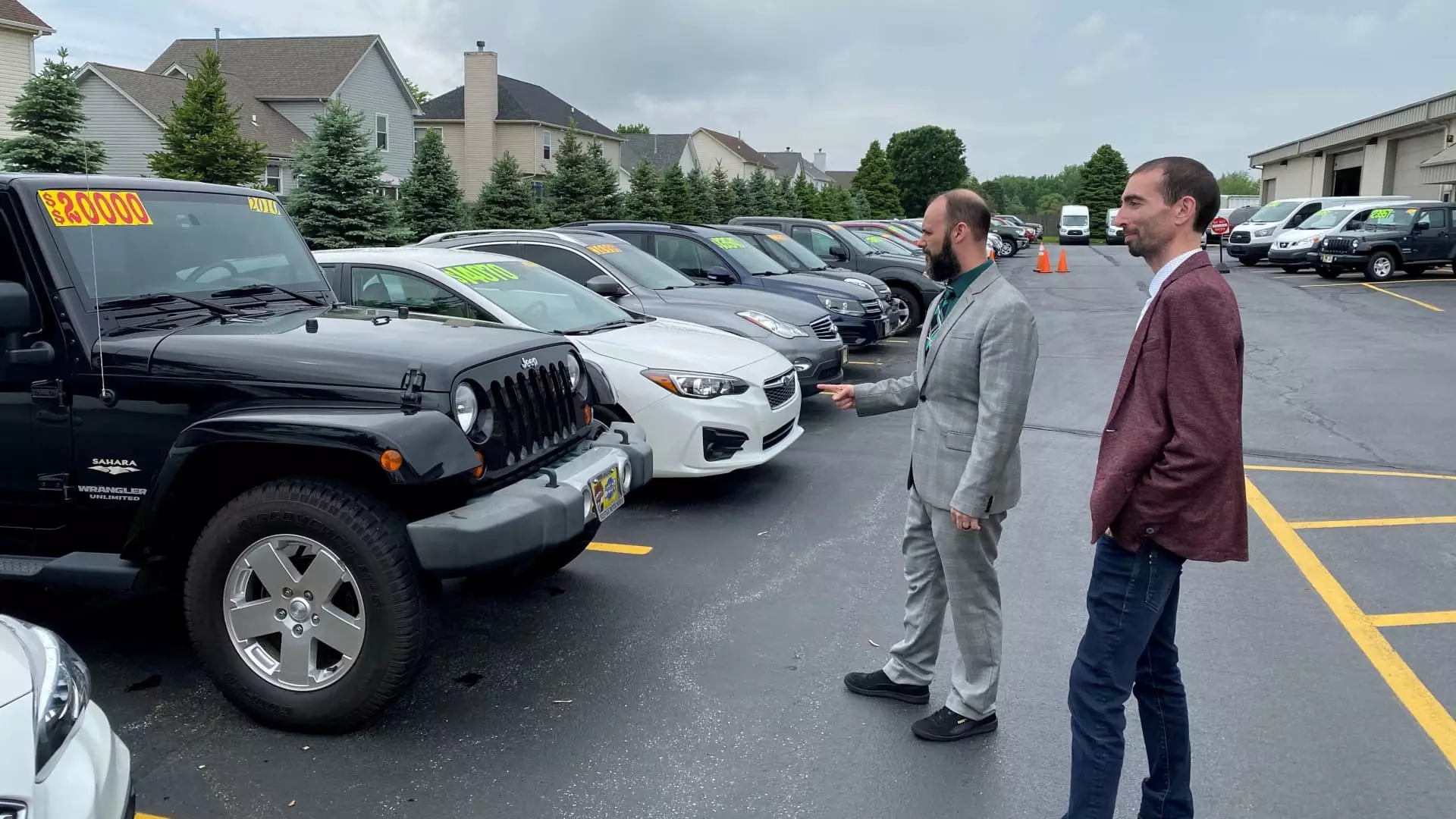As the automotive industry prepares for the forthcoming year, a palpable sense of optimism has emerged among U.S. car dealers, influenced by the recent political landscape and economic indicators. The anticipated return of Donald Trump to the White House has instigated discussions regarding shifts in policy that could radically affect the auto retail market. However, this renewed optimism is juxtaposed with caution surrounding the future of electric vehicle (EV) sales, highlighting a complex and evolving narrative within the automotive sector.
According to the latest findings from Cox Automotive’s “Q4 2024 Dealer Sentiment Index,” a survey aimed at gauging automotive dealer attitudes, there has been a notable uptick in confidence regarding business prospects—rising from a score of 42 to 54. This increase is noteworthy as it signals a turnaround from a year that saw the lowest sentiments in recent history, indicating dealers’ renewed expectations for a stronger market in the coming quarter. Notably, values above 50 are indicative of a majority perspective of the market as favorable, rather than detrimental.
Despite this promising index, the reality remains that many dealers still perceive the current market conditions as weak, a sentiment that underscores the fragility of the automotive retail landscape. The index score of 42 still lingers below pre-pandemic levels and long-term historical averages, suggesting that while optimism is growing, it is tempered by lingering uncertainties.
While the political shifts have led to increased optimism about general market conditions, the outlook for electric vehicles paints a contrasting picture. The sentiment surrounding EV sales is markedly pessimistic, with many dealers anticipating declines in sales over the next quarter. Concerns primarily revolve around prospective changes in government policy that could undermine the incentives promoting EV adoption, such as the potential reduction or elimination of the federal tax credit of up to $7,500 for purchasers of electric vehicles.
Cox’s Chief Economist, Jonathan Smoke, emphasized the critical role that tax credits play in driving both new and used EV markets. The apprehension regarding the future of these incentives appears to directly correlate with dealers’ decreasing confidence in the EV sector’s viability, revealing a tension between current optimism in the broader automotive market and the specific hindrances facing electric vehicle sales.
In addition to the political climate, other economic factors are influencing dealer optimism. Henceforth, both interest rates and manufacturer incentives come into play as pivotal elements that can significantly impact dealership operations. The overall market for new and used vehicles remains robust, supported by high vehicle pricing despite some inventory challenges. Publicly traded auto dealer stocks have enjoyed a promising year, with notable companies such as AutoNation and Lithia Motors experiencing gains between 15% and 22%.
This price stability in the face of high demand illustrates that while macroeconomic factors are shifting, the fundamental aspects of dealership operations still favor profitability. Dealers are thus finding some solace in market performance, as indicated by the overall positive stock trends in the automotive retail sectors. Supportive measures such as potential tax rebates and declining interest rates are viewed as catalysts for enduring confidence moving into 2025.
As the road ahead for U.S. auto dealers is navigated into the depths of 2025, the blend of renewed optimism alongside pronounced concerns about electric vehicle sales presents a complicated landscape. While positive sentiments regarding the overall automotive market are on the rise, the future of electrification hangs in a delicate balance. The potential for policy changes under the Trump administration raises uncertainties that dealers must contend with in their business planning.
Ultimately, this moment calls for a nuanced understanding of the market dynamics. Dealers need to remain agile, leveraging positive indicators while actively addressing the concerns surrounding EV sales, ensuring that they are not caught off guard as they move into a new political and economic paradigm. The automotive industry stands at a crucial crossroads, and the decisions made today will undoubtedly shape its trajectory for years to come.

